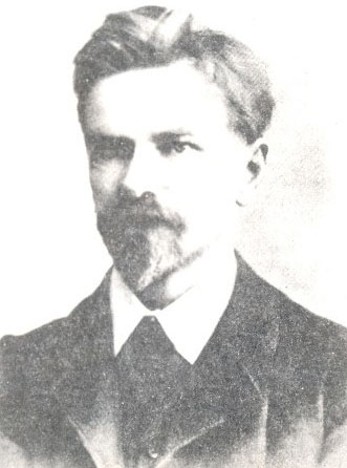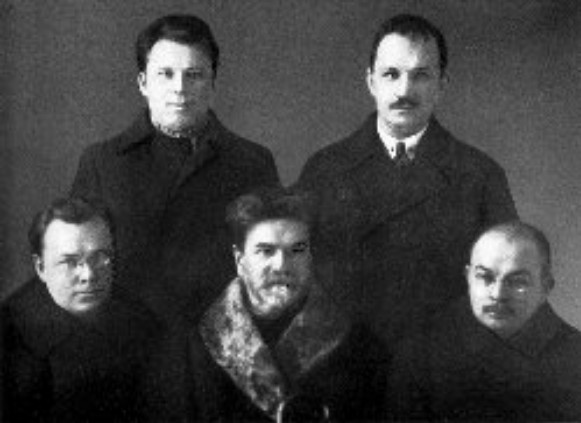Mohyliansky, Mykhailo
Mohyliansky, Mykhailo [Могилянський, Михайло; Mohyljans’kyj, Myxajlo], b 4 December 1873 in Chernihiv, d 22 March 1942 in Bolshaia Murda, Krasnoiarsk krai, RSFSR. Literary scholar, publicist, translator, and writer. In the late 1890s he published under cryptonyms in the Galician papers Zhytie i slovo and Dilo. After studying law at Saint Petersburg University he worked as a lawyer in Kyiv and contributed regularly to the paper Kievskiia otkliki. After the Revolution of 1905 he practiced law in Saint Petersburg, was an active member of the Constitutional Democratic (kadet) party, and contributed articles on Ukrainian literature and the Ukrainian question to its organ Rech’ and to the journals Russkaia mysl’ and Ukrainskaia zhizn’. His Russian translations of the stories of his friend Mykhailo Kotsiubynsky were published in Russian journals and in three separate volumes (1910, 1911, and 1914) in Saint Petersburg. In 1911 he published his first of several stories in the Lviv journal Literaturno-naukovyi vistnyk.
After the Revolution of 1917 Mohyliansky lived in Kyiv. Under Soviet rule he published articles in literary theory and on Ukrainian literature (particularly on the writers Hryhorii Skovoroda, Panteleimon Kulish, Mykhailo Kotsiubynsky, and Taras Shevchenko) in VUAN serials and in Knyhar, Zhyttia i revoliutsiia, thejournal Nova hromada, and other Soviet periodicals. From 1923 he supervised the important VUAN Commission for the Compilation of a Biographical Dictionary of Ukraine (the first volume of the dictionary had been completed by 1930, but was never published). He was closely associated with the Neoclassicists and took part in the famous Literary Discussion of 1925. In 1926 his story ‘Ubyvstvo’ (The Murder) was published in Chervonyi shliakh; it was seen as condemning the former UNR president Mykhailo Hrushevsky's accommodation with the Soviet regime, and the Bolshevik authorities forbade the publication of his works. They continued to appear, however, under various pen names (including P. Chubsky) until the late 1920s. During the Stalinist terror of the 1930s Mohyliansky's daughter, Ladia Mohylianska, and son, Dmytro Tas, were sent to labor camps, and he was purged from the VUAN. He voluntarily moved to northern Russia to be near his daughter, who was executed in 1937. During the Second World War he was evacuated to Krasnoiarsk krai, where he died.
Roman Senkus
[This article originally appeared in the Encyclopedia of Ukraine, vol. 3 (1993).]


.jpg)
.jpg)